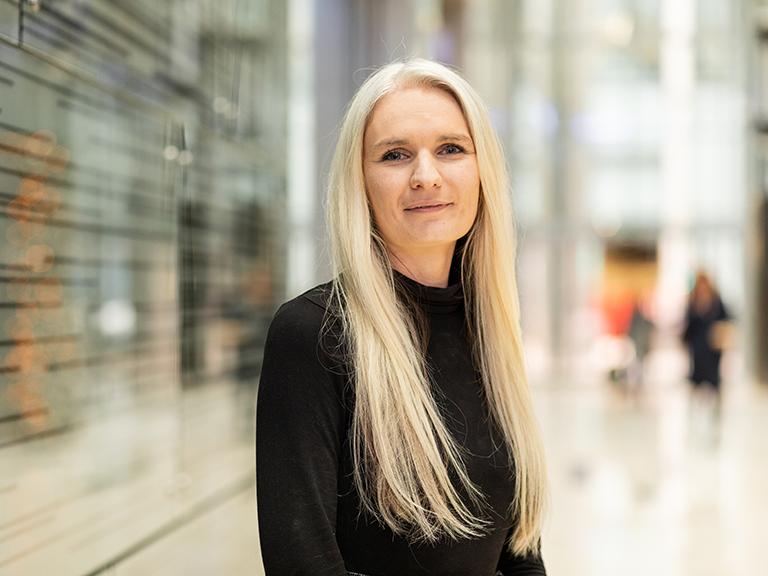Every year, MSc Business Analytics students carry out a practical consulting or independent research-based project with business and support in finding a solution to a problem the company needs solving. They use the skills and knowledge they have developed on the programme to analyse company data and find solutions to help the organisation, better its business, change a process or just get more of a throughout understanding of its customers and target market.
Alumnus Michal Kowalski shares his business project experience with Sync, a FinTech app that allows you to manage all your money from different accounts in one place.
what you have been doing since you graduated?
Since graduating from UCL I have moved back home to Poland and joined Zeb consulting agency on a graduate scheme. In my first three months at Zeb, I have been involved in two projects focused on strategy development for two departments within a leading Polish bank.
Why did you want to study Business Analytics at UCL School of Management?
At undergraduate level, I studied Business and Management at the University of Durham. Despite the fact that I enjoyed the course and learnt about topics such as internationalisation, strategy, and finance, I felt that I needed to acquire some hard skills that would be more tangible in working life. Business Analytics offers a bridge between Computer Science and Business, making the programme an ideal way to learn programming and statistics to solve common business problems in an applied and rigorous way. The programme’s unique structure in offering a consulting project and the opportunity to focus on data analytics modules made UCL School of Management the perfect choice for me.
How did you find your project at Sync?
It was the Business Analytics Programme Director who recommended the project at Sync. We had previously discussed my interest in Financial Services and he felt the company would offer me some great experience in that area. The interview processed consisted of a pre-recorded video-interview and an in-person interview.
how did you manage the project remotely?
The project was set to start in May, which unfortunately coincided with the Spring peak of the pandemic in the UK, therefore my project was delivered remotely. I did not have the opportunity to work with Sync. colleagues on the daily basis, but I scheduled weekly jour-fixes with the Tech department during which we shared progress and updates. I was also able to ask any questions to my company supervisor through Slack or during our fortnightly meetings. I am delighted to say that even while undertaking the entire project remotely I have been able to create some good relationships with the team, which resulted in actually meeting socially in Warsaw once the project had finished - as one of the Sync. employees travelled here with his family.
What problem did you identify and how did you resolve it?
My project was quite different in this regard as the company has not specified a problem for me to solve. Therefore, I needed to come up with one through exploratory data analysis and conversations with the company. After a few weeks of analysing the data, I discovered that the majority of Sync. clients are inactive (i.e. had no debit card transactions or transfers in the last 3 months). I created a supervised learning algorithm that aimed to predict whether a person has or has not churned. With these predations, Sync. could take some tactical or strategic actions to activate their clients (or a share of them) and hence, increase profit.
Do you think the skills that you learnt on the programme helped you support Sync?
Yes, the skills I have gained during the Master’s degree certainly helped me to achieve the project goals – without the programming class delivered by David and Alastair, I would not have the ability to use programming to predict what I wanted to as I did not have any prior experience in that field. However, I would say that the most important skill that helped me in the project was my understanding of mathematical foundations through which I have been able to understand the models and their statistical importance and subsequently also assess the performance of my models.
What did you learn from the project?
The project has taught me many important things that I will remember and continue to use throughout my career, but the one that I think will be most valuable is to be flexible in the methods used in projects. Sometimes it might be better to use an easier method that works rather than to spend 1 or 2 weeks on some minor detail that stops the whole projects. That reminded me that “Done is better than perfect”.
Do you think the project helped prepare you for working in industry?
Although my current work is not directly related to analytics, the project has been successful in teaching me the fundamentals of project management and allowed me to work individually on a lengthy and complicated task from start to finish – that’s something that is definitely important in my current line of work.
Learn more about our MSc Business Analytics programme.
